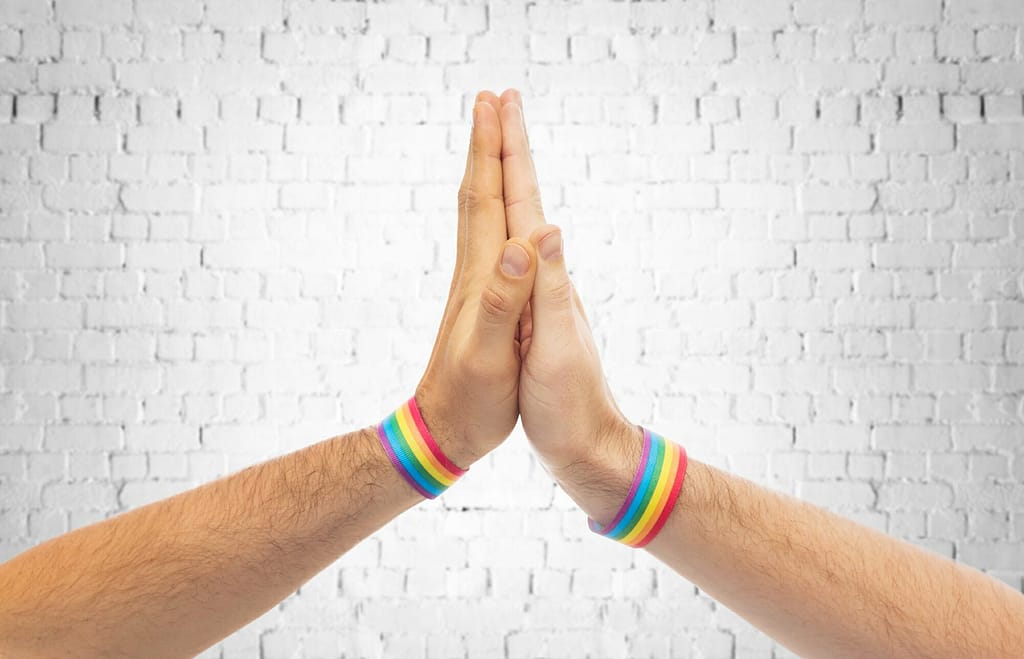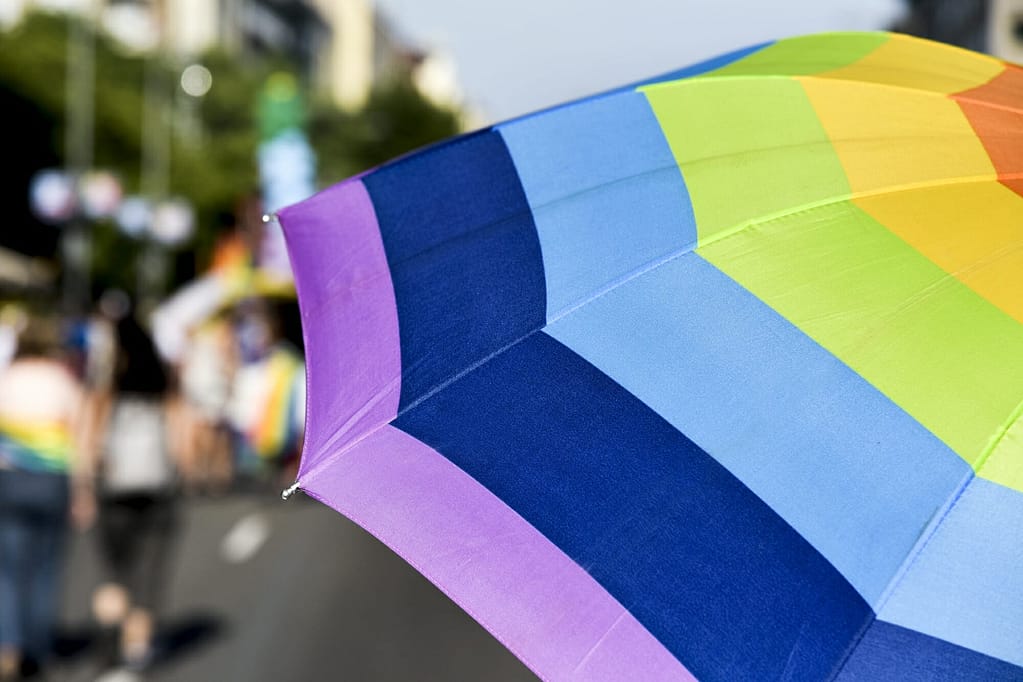- Life in Japan
Pride month in Japan 2020
Happy Pride Month from LJC!
What is Pride Month?
LGBTQ Pride Month is usually commemorated each year in the month of June to honor the 1969 Stonewall riots in New York City.
In June of 1969, patrons of the Stonewall Inn staged an uprising to resist police harassment and persecution to which LGBTQIA+ people were commonly subjected to at the time.
This uprising, although not the first or last of it’s kind, is used to mark the beginning of the LGBTQIA+ rights movement. From the following year, 1970, the first pride marches and celebrations were held with the movement growing steadily over the past 50 years.
Today Pride events are held around the world to promote diversity, LGBTQIA+ equality, and educate others about the LGBTQIA+ community.
Today Link Japan Careers’ staff recruiter and writer Gordon writes about his experience with the register partner system that is becoming more accepted around Japan.
We hope this content will help the LGBTQIA+ community and their allies during this fun month.
It’s hard to forget the 2018 comments from Mio Sugita, a member of the ruling Liberal Democratic Party (LDP), calling LGBT individuals “unproductive“ as, “these men and women don’t bear children.“
This was a stark reminder that although there are signs of social acceptance and progress of and for the LGBTQIA+ community in Japan, there is still much work to be done both socially and at the political level.
As a member or ally of the LGBTQIA+ you may be finding yourself wondering what life is like in Japan, what protections (if any) are there for you and your current or potential partner, perhaps you’ve heard about Japanese cities starting “same-sex partnership registrations.”
Still, it’s unclear what those are what they mean for registered partners.
It’s impossible to cover all facets of this topic in one blog post. Therefore, in this article, we’ll look at the same-sex partnership registration system in more detail, precisely what it is, where it is available, the benefits and drawbacks of this system, and how it might apply to non-Japanese residents.

What is the same-sex partnership registration system?
First, what is the (同性)パートナーシップ制度 or (same-sex) partnership registration system?
This is a system adopted by 49 municipalities and two prefectures as of May 17, 2020, to allow partners of the same biological sex to register with their municipal government as partners.
It should be noted that transgender people in Japan are prevented from aligning their official government documents with their gender identity without undergoing gender-affirming surgeries, being unmarried, having no biological children, and undergoing medical sterilization.
Although these laws have been, and continue to be challenged, the strict requirements to gain legal recognition of one’s gender identity means many trans people find themselves unable to enter into a legal marriage in Japan.
The partnership registration is intended to provide some formal recognition of the relationship formed between two consenting adults who share a household. It should be noted that partnership registration is not always limited to couples of the same biological sex and may also be available to common law cis-gender heterosexual couples.
It’s useful to know where it is available before delving into the benefits and drawbacks of the partnership system.
As mentioned previously, there are currently 49 municipalities and two prefectures with a partnership system in place.
As each municipality/prefecture can set up their system, the requirements for eligibility vary greatly.
Using my personal experience as a case study, my Japanese husband and I were married in my home country (the U.S.) in 2014 shortly after “same-sex marriage” became legal in the United States.
This Apri 2020, our city began a partnership registration system. In our case, we were required to provide a copy of our marriage license with a Japanese translation (they accepted a translation we did ourselves in a word document), and a copy of our residence certificates (住民票) listing my husband as the registered head of our household.
When we asked what paperwork would have been required if we had not been previously married overseas, we were told we would have been asked to provide documentation showing that neither of us was currently married either in Japan or in my case the U.S.
We were also informed that the partnership system could not be applied if a non-Japanese resident does not have a valid status of residence in Japan and maybe denied based on the amount of time remaining on their status of residence.
If the person applying has less than a year left of their current status of residence, they may not be able to register their partnership.
In short, we found the system, at least in our city, was not designed with ease of access in mind, and I was happy that my husband was able to navigate the requirements with me.
The actual registration itself was quite quick. After collecting our documents, we were asked to make an appointment with the city office gender equality division.
We arrived at our appointed time and were greeted at the counter by a doll representing our city mascot holding a pride flag.
Two city office officials whisked us away to what looked like a rarely used, meeting room on an upper floor of the city office.
We were asked to sign statements indicating that the information we had provided was accurate to the best of our knowledge.
We were then asked to stand while the city office staff read out the partnership certificates that we, in turn, each signed.
We were given cards showing our registered status, and we were sent on our way with congratulations.
The whole process was taking around an hour at most.
Pros and Cons with the partnership registration system
Of course, there is some debate as to the benefits and the drawbacks of the partnership registration system.
I should note my husband, and I are also quite active in the movement for full marriage equality in Japan. Some folks within the LGBTQIA+ community have pushed back at the partnership registration system as it falls far short of full equality.
My husband and I share the perspective that one significant benefit of this system is visibility.
It can still be quite difficult for folks to come out publicly in Japan.
This can lead to the myth that there are fewer LGBTQ+ folks here or that there is little interest in LGBTQ+ equality or the mistaken belief that political figures can publicly malign our community without consequence.
Partnership registration is one genuine way to stand up and be counted. Of course, this goes hand in hand with the drawback of basically forcing someone to come out publicly in official documents that can easily be researched by potential employers, family members, other government agencies.
It also discounts folks in the community who are not partnered or do not wish to be partnered.
It runs the risk of oversimplifying the struggle for LGBTQIA+ equality down to just marriage equality.
These are all valid points, and every person needs to determine for themselves if this system is right for them. In that sense, partnership registration is very similar to marriage in that it’s not something you can keep off the public record.
This can come along with genuine risks, especially for Japanese citizens who may risk their careers, living situation, and or family relationships if they come out in such an obvious and public way.
Considering the legal benefits of partnership registration, you’ll find they vary greatly by municipality.
Some municipalities have given their registration a bit legal power promising consequences (fines or reprimands) for businesses, employers, and housing agents or landlords who discriminate based on their partnership status.
However, many municipalities (my own included) have taken a much softer approach asking for “cooperation” and “understanding” of diversity without any real consequences for outright discriminatory behavior.
Perhaps the biggest drawback to this piecemeal approach to equality is the nontransferable nature of the partnership registration certificates. As each municipality or prefecture issues the certificates (except in a few rare cases of adjoining municipalities), they are only recognized by the issuing municipality or prefecture.
Therefore, if my partner and I were to relocate to another city or prefecture, our partnership registration with our current city would be nullified.
We may or may not end up in a location where we could register our partnership anew.
This also means that if we were to encounter discrimination outside of our city based on our status as a registered same-sex partnership, our registration would have no standing in helping battle that discrimination.

Is the partnership registration something you may be interested in?
If you feel that partnership registration may interest you, my advice is to do your homework, ask questions, and if your city does not offer a partnership registration system, consider lending your voice to the movement.
Many cities have a system where you can write directly to your mayor, and the mayor will often reply to you by post. My husband and I made a regular practice of writing to our mayor each time a new municipality began offering partnership registration.
I don’t know what impact, if any, this made on our city finally adopting a system of their own. Still, I think visibility is important, and demonstrating a want and need is one way to gain government officials.
I’d like to leave things on a more optimistic note for those folks currently living in Japan or considering a move to Japan.
My husband and I have experienced very little discrimination as a couple in Japan.
We have been able to rent a one-bedroom apartment. We have insurance policies that list each other as beneficiaries. We have been able to avail ourselves of family discounts for cell phones, and we have traveled all over the country.
We have never been denied lodging, and aside from the rare sideways glance or whispered comments from folks on the train or street, we haven’t experienced any repercussions from holding hands in public or exchanging a goodbye kiss at the station gate.
In our day to day lives, we are lucky to have jobs where we can be out, and (although it took some time) my husband’s family has even come to accept our relationship.
I do feel that Japan at large is a comfortable and safe place for LGBTQIA+ people.
Admittedly experiences can vary greatly depending on location, and where a person falls on the gender identity and/or expression spectrum, and I admit my experience as a cisgender gay foreigner is maybe not the best ruler to judge by, however, as non-Japanese LGBTQIA+ folks I think we have an opportunity to lend our privilege and our voices to our Japanese comrades in their fight for equality.
We can do that by educating ourselves about LGBTQIA+ rights in Japan, sharing our experiences, and drawing attention to the needs of our community locally and globally.

